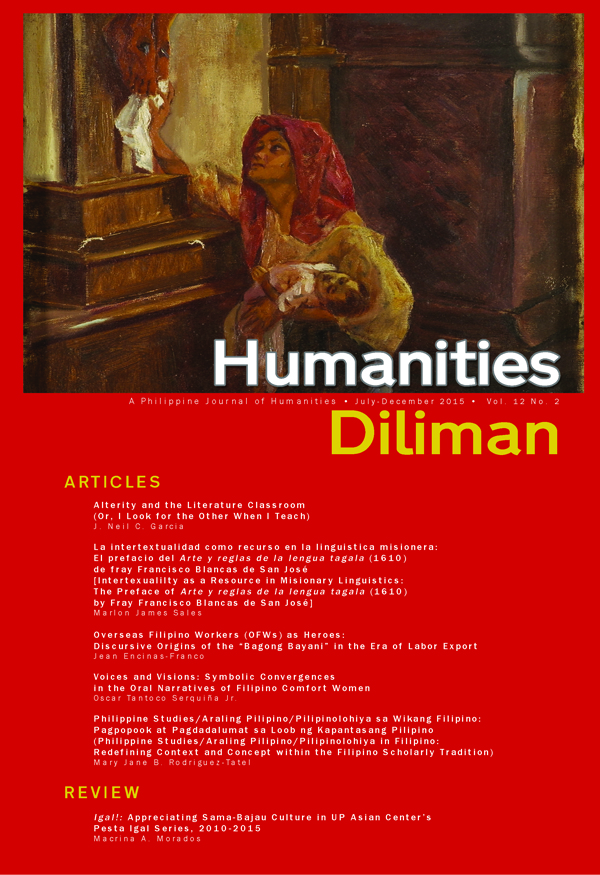Overseas Filipino Workers (OFWs) as Heroes: <br>Discursive Origins of the “Bagong Bayani” in the Era of Labor Export
Abstract
This essay seeks to trace the relevant national and global contexts from which the bagong bayani discourse of OFWs emerged. It does so by discussing the evolution of labor out-migration in the Philippines from its beginnings in the colonial times, to overseas employment’s institutionalization in the Labor Code of 1974, until the administration of President Corazon Cojuangco-Aquino. It specifically presents the political, social, and economic context around which Aquino managed and continued the state-sponsored labor export program initiated by Marcos. Finally, it discusses the factors that made it possible for Aquino to designate migrants as “heroes”. The argument is that bagong bayani is a product of the global and national context. It can be best understood by examining transformations in global and political-economic structures, and discursive origins of heroism in the Philippine context. Presenting these contexts will provide a clearer understanding of why it has become commonsensical to regard OFWs as bagong bayani.
Keywords: Bagong bayani, “modern-day heroes,” labor expert, OFWs discourse, labor out-migration


